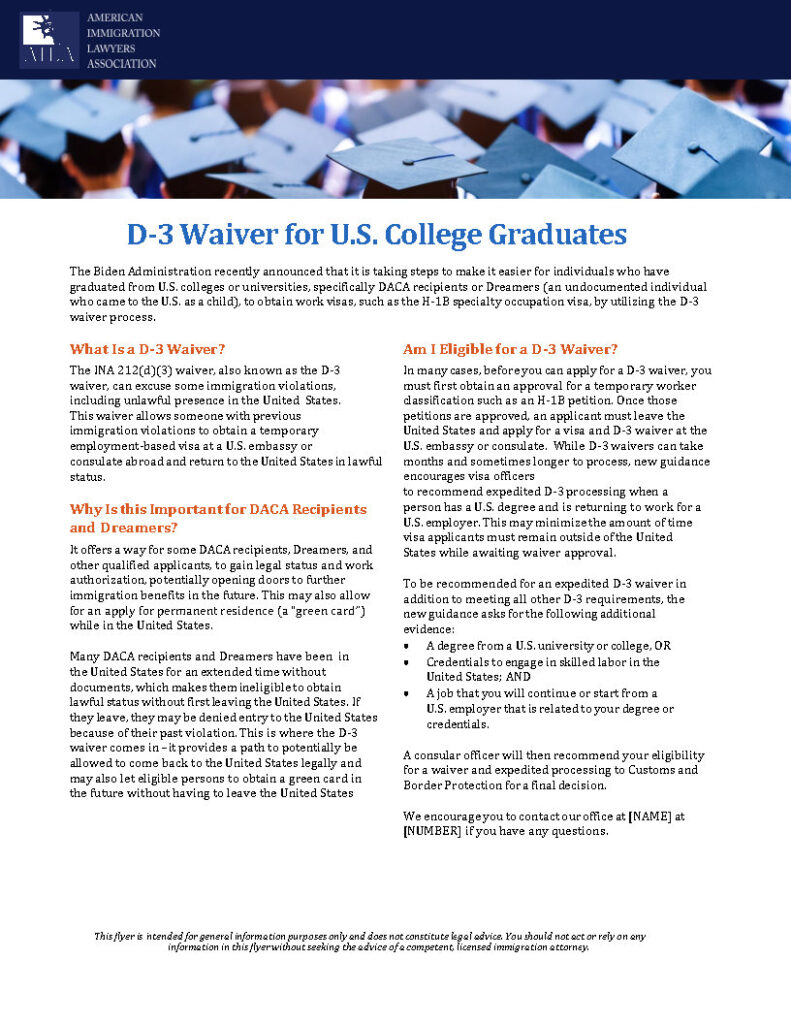
SUPREME COURT NOT LIKELY TO REVIEW DACA THIS TERM
On January 22, 2019, the Washington Post and Politico reported that the Supreme Court is unlikely to review the U.S. Court of Appeals for the 9th Circuit’s decision on Deferred Action for Childhood Arrivals (DACA) this term. The 9th Circuit blocked the Trump administration from ending DACA, and SCOTUS’ decision not to intervene this term preserves the status quo. This means the Trump administration is required to continue accepting renewals, but not new applications to the DACA program.
The Trump administration moved to end the Obama-era program in 2017, but the 9th Circuit rejected the administration’s theory that DACA was unlawful and kept the program in place. Those individuals who have been approved for the program are protected from deportation and allowed work permits so long as they follow its regulations and do not violate laws.
Notably, the 9th Circuit opinion did not rule that DACA could not be rescinded as an exercise of executive power, but only that the decision to end DACA was based on an erroneous view of what the law required.
Based on the high Court’s normal procedures, even if it accepts the case at a later date, it would not be argued until the new term starts in October, with a decision likely in 2020
Advocates Increase Efforts to Reach DACA Eligible Immigrants
The face of undocumented immigrants in the U.S. is typically portrayed as Latin American, and more often than not, is also assumed to be Mexican. As most undocumented immigrants living in the U.S. do hail from Central and Latin America, deferred action advocacy and grassroots organizing has been focused around these populations. Yet, outreach to other immigrant communities, such as the Chinese and Filipinos, has been lacking. Groups like Atlas: DIY are trying to change this by conducting neighborhood outreach in immigrant neighborhoods in Brooklyn. Some advocates contend that there is less discussion of undocumented status within Asian communities, which may decrease the likelihood that qualified individuals will seek out deferred action. The New York City Council is investing millions in a push to help bring out these individuals. How advocates across the nation will reach their respective lesser-known immigrant communities remains to be seen.
The New Reforms: What You Need to Know
Originally published in the May 20, 2013 edition of Law Week Colorado.
Will Undocumented Immigrants Finally Obtain Relief?
USCIS Releases Updated DACA Statistics
On July 15, 2012, the Department of Homeland Security announced a new deferred action program for certain individuals who came to the United States as children and who meet educational, continuous presence, and other key requirements. Under this program, known as the Deferred Action for Childhood Arrivals (DACA) program, eligible individuals may request deferred action and work authorization for a period of two years, which is subject to renewal. At this time, the program does not provide applicants with legal status, it simply places them in a period of authorized stay during which any removal action is deferred.
